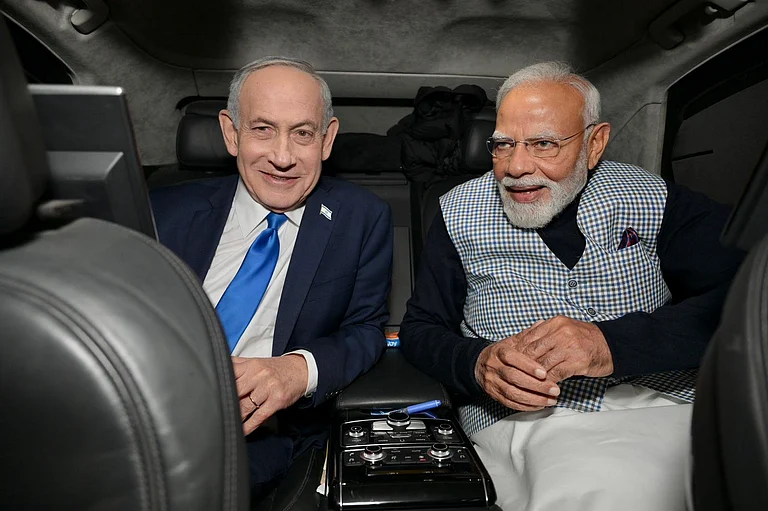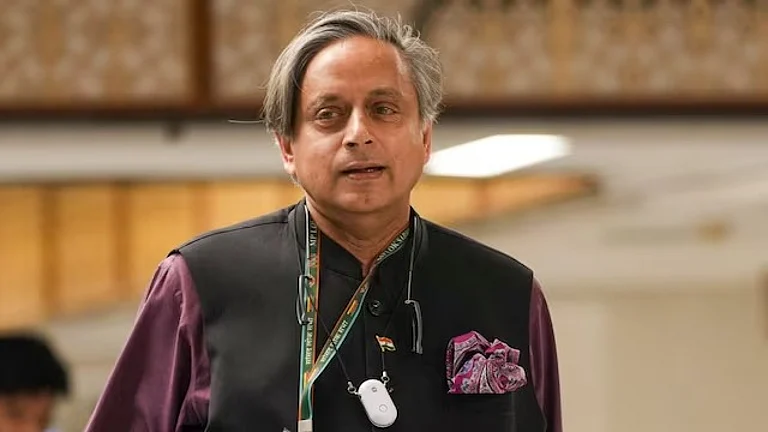
Summary of this article
India said it expects Saudi Arabia to consider “mutual interests and sensitivities” after Riyadh signed a defense pact with Pakistan.
Former envoys warned the agreement, which treats aggression against one as aggression against both, is a “matter of concern.”
Diplomats noted the deal adds a “discordant note,” but stressed India-Saudi strategic partnership is robust and will continue.
India stated on Friday that it anticipates Saudi Arabia to consider "mutual interests and sensitivities" following the signing of a strategic defence agreement between Riyadh and Pakistan.
The agreement states that "any aggression against either of the two countries shall be considered as an aggression against both".
"India and Saudi Arabia have a wide-ranging strategic partnership that has deepened considerably in the last few years," External Affairs Ministry spokesperson Randhir Jaiswal said.
"We expect that our strategic partnership will keep in mind mutual interests and sensitivities," he said.
At his weekly media briefing, Jaiswal was answering a query.
Shehbaz Sharif, the prime minister of Pakistan, and Mohammed bin Salman Abdulaziz Al Saud, the crown prince of Saudi Arabia, signed the "Strategic Mutual Defence Agreement" on Wednesday.
Sharif was visiting Saudi Arabia with Defence Minister Khawaja Asif and Pakistan Army Chief Field Marshal Asim Munir.
The Pakistan-Saudi Arabia joint statement said the new defence agreement reflects the "shared commitment of both nations to enhance their security" and it "aims to develop aspects of defence cooperation between the two countries and strengthen joint deterrence against any aggression." Pakistan has been a key ally of Saudi Arabia, and both sides have a relationship in the defence sector.
Indian Envoys Raise Concerns
Two former Indian ambassadors stated on Friday that New Delhi must handle its relationship with Riyadh "carefully and deftly" and that the signing of a strategic mutual defence agreement between Saudi Arabia and Pakistan is "not a positive development" from India's perspective.
The seasoned diplomats concluded that India-Saudi Arabia relations "will remain strong" despite this event.
Ashok Kantha, India's former envoy to China, said, "I don't have details about the agreement, but obviously it's not a good development from our point of view".
He said it's not a kind of positive signal coming from Saudi Arabia, and it's "not a positive development".
Asked if it will affect India-Saudi Arabia ties, Kantha said he didn't want to jump to conclusions.
"Our ties (with Saudi Arabia) are very important, multi-faceted, they are based on several pillars," he added.
It has been a fairly robust, multi-faceted strategic engagement with Saudi Arabia, and "I believe that will continue", the former envoy said, adding, "our relationship with Saudi Arabia, I believe, will remain strong".
The development seems a "bit of a jarring, discordant note" in a relationship which was developing in a "very positive and constructive manner," he said.
Considering the engagements that India has pursued with Saudi Arabia, several diplomats stated that the MEA's remark on the development a day ago "didn't come as a surprise to us."
This move is "certainly a matter of concern," according to veteran diplomat Venu Rajamony, who cited the agreement that states that any attack on one of the two countries will be deemed "an aggression against both."
The strike on Qatar by Israel may have been the immediate setting of that. According to him, however, Pakistan is "aligning itself more and more with Islamic countries and the Gulf Arab countries, than the Arab countries in general" in light of West Asian developments.
"It can certainly have implications for India also," the former envoy said.
Rajamony served as India's ambassador to the Netherlands from 2017 to 2020.
He conjectured that in the Saudi mind, this pact "may not be targeted at India".
Asked, will this development impinge on India's ties with Saudi Arabia, Rajamony said, "Certainly, too early to say, Saudi Arabia being an extremely important partner for us." "So, India will have to manage the relationship carefully and deftly," he added.
Spokesperson of the external affairs ministry, Randhir Jaiswal, on Thursday issued his response in a statement to media queries related to the reported development.
"The Government was aware that this development, which formalises a long-standing arrangement between the two countries, had been under consideration," he said.
Referring to the MEA statement of Thursday, Rajamony said, whichever way one interprets the development, "it only looks like something negative for India".
"It's not a good sign," the envoy added.
What is clear is that Saudi Arabia is "not in any way abandoning Pakistan, they are coming closer to Pakistan even in security terms," he said.
The Strategic Mutual Defence Agreement states that "any aggression against either country shall be considered an aggression against both," according to the joint statement.
With PTI inputs.























